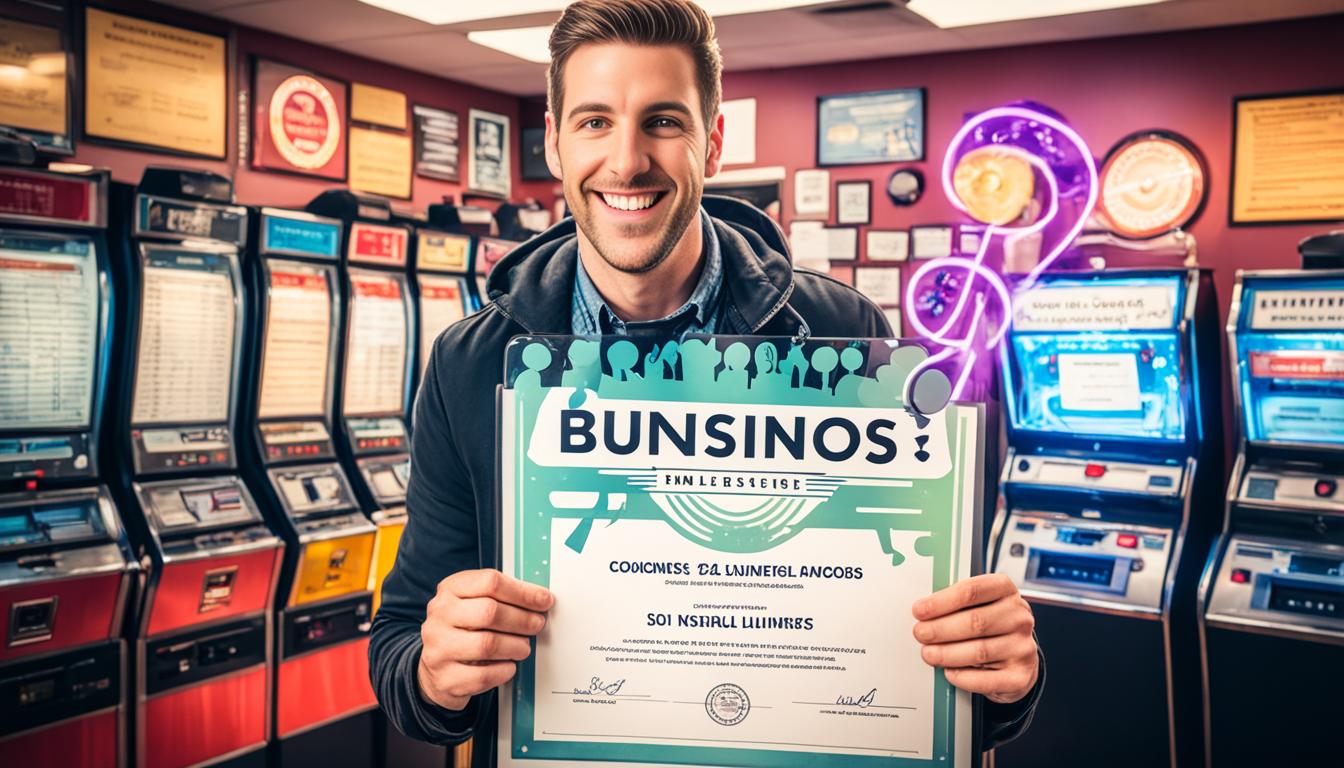Are you a business owner looking to enhance the atmosphere of your establishment with the perfect background music? Have you considered the legal implications of streaming music in your business? Obtaining a music license for your business is vital to ensure compliance with copyright laws and avoid potential penalties for copyright infringement. But how exactly can you acquire the necessary licenses and find the right music for your commercial use?
In this article, we will guide you through the process of obtaining a music license for business. From understanding different types of licenses to exploring the importance of music publishing, we will provide you with the information you need to stay legal and enjoy the benefits of commercial use music.
So, let’s delve into the world of music licensing and discover how you can keep your business tuned in without compromising legal compliance.
Types of Music Licenses for Streaming Services
When it comes to streaming services, there are several types of music licenses that businesses need in order to legally use music. These licenses include master rights, publishing rights, performance rights, and sync licensing for business.
Master Rights
The first type of license is the master rights. This refers to the rights to the actual recording of a song. Typically, master rights are owned by the artist or record labels. Streaming services need these licenses to stream the recorded music to their audience. Without the master rights, streaming services could face copyright infringement issues.
Publishing Rights
Publishing rights are another important license for streaming services. These rights refer to the rights to the song itself, including the melody and lyrics. They are typically owned by the songwriter or composer. Streaming services need publishing rights to legally stream the songs to their audience. Without these rights, streaming services would not have the legal authority to broadcast the songs.
Performance Rights
Performance rights are administered by performing rights organizations (PROs) such as ASCAP, BMI, and SESAC. These organizations manage the rights to publicly perform songs. Streaming services must obtain performance rights licenses to publicly play the songs on their platform. These licenses ensure that songwriters and composers are properly compensated for their work.
Sync Licensing
In addition to the three main types of music licenses, sync licensing is required for streaming services that use music in videos, karaoke tracks, or video games. Sync licenses allow streaming services to synchronize music with visual content. This type of license is important for creating a cohesive and immersive experience for the audience.

Understanding the different music licenses is essential for streaming services to operate legally and to avoid copyright infringement issues. By obtaining the necessary licenses, streaming services can provide a wide range of music to their audience while respecting the rights of copyright holders.
| Type of License | Description |
|---|---|
| Master Rights | Rights to the actual recording of a song, typically owned by the artist or record labels. |
| Publishing Rights | Rights to the song itself, including the melody and lyrics, typically owned by the songwriter or composer. |
| Performance Rights | Rights to publicly perform a song, administered by performing rights organizations (PROs). |
| Sync Licensing | Licensing for streaming services that use music in videos, karaoke tracks, or video games. |
How Streaming Services Obtain Music Licenses?
Streaming services acquire licenses to stream music by directly negotiating with the copyright holders, including individual songwriters, record labels, and music publishing companies. This process involves negotiating a license agreement that outlines the terms and conditions for the use of the music by the streaming service.
The license agreement covers important aspects such as the territories where the music will be streamed and the amount of royalties to be paid to the copyright holders. Negotiating these terms is crucial to ensure a fair and mutually beneficial agreement for both parties involved.
To identify copyright holders, streaming services can refer to copyright websites or contact copyright organizations such as the US Copyright Office or UK Copyright Service. These resources help in obtaining the necessary information to initiate negotiations with the appropriate copyright holders.
Once the licenses are acquired, it is important for streaming services to keep track of them and renew them as needed. This ensures ongoing legal compliance and allows the streaming service to continue offering music to its users without any copyright infringement concerns.
Obtaining licenses to stream music is a vital step for streaming services to provide a diverse and legal music catalog to their users.

By negotiating license agreements with copyright holders, streaming services can acquire the necessary rights to legally stream music and offer an enriching music experience to their audience. These licenses serve as a legal foundation for streaming services to operate in compliance with copyright laws and ensure fair compensation for the creators of the music being streamed.
Music Licensing for Podcasts
Podcasts have become a popular medium for sharing stories, information, and entertainment. To enhance the listening experience, many podcasters incorporate music into their episodes. However, it’s important to understand that using copyrighted songs in podcasts without proper licensing is a violation of copyright laws.
Podcast music license is necessary to ensure that podcasters have the legal right to use music in their episodes. This includes obtaining licenses for intro, background, and outro music, as well as any sound effects used.
When it comes to finding music for podcasts, there are a few options available. Some podcasters choose to use music that they own outright, meaning they have composed and recorded the music themselves. This grants them full control and eliminates the need for licensing. However, not all podcasters have the ability to create their own music, which leads them to explore licensed music options.
Music licensing for podcasts provides access to a vast library of curated, high-quality music that can complement the podcast content. Licensed music ensures that podcasters are using music legally and respecting the rights of copyright holders.
It’s important to note that using music from the radio, streaming services, or purchased CDs or downloads in podcasts without proper licensing is not permitted. These sources do not grant podcasters the necessary rights to use the music in an audio format for their episodes.
Sync license for podcasts is a common type of license required for podcast music. A sync license allows podcasters to synchronize music with their episodes, creating a cohesive and immersive listening experience. It’s essential to obtain sync licenses to avoid potential legal issues and ensure compliance with copyright laws.
Fortunately, there are licensing platforms available that offer affordable and customizable options for podcasters. One such platform is Track Club by Marmoset, which provides a wide range of licensed music specifically tailored for podcasts. With these platforms, podcasters can find the perfect music to enhance their episodes while staying legal and respecting copyright laws.
The Importance of Music Publishing
Music publishing is a vital aspect of the music industry that encompasses the development, protection, and valuation of music. It plays a crucial role in supporting songwriters and composers by providing them with the necessary resources and opportunities to thrive in their craft. Music publishers also have the responsibility of securing commissions for new works, registering works with collecting societies, producing and licensing printed music, promoting music to commercial users, and licensing the use of music.
At the core of music publishing is the commitment to safeguarding copyright protection for music. This is of utmost importance in ensuring that creators receive proper credit and compensation for their works. Without a strong copyright framework, music publishers would struggle to recoup their investments and support the artists they represent.
Music publishers work closely with composers and songwriters, entering into contracts to administer their copyrighted works and manage the licensing process. By doing so, they ensure that the music is properly licensed for use in various contexts, such as film, television, advertising, and public performances.
In addition to managing licensing agreements, music publishers are responsible for collecting and distributing royalties to the songwriters and composers they represent. This ensures that the creators are fairly compensated for the use of their music, allowing them to continue their artistic endeavors.
The Role of Music Publishing Rights
Music publishing rights are a crucial component of the music industry. These rights grant music publishers the authority to control and exploit the compositions they represent. With music publishing rights, publishers can negotiate licensing agreements, collect royalties, and protect the interests of the songwriters and composers.
Copyright protection is fundamental to music publishing rights. It grants exclusive rights to the copyright owners, allowing them to control the reproduction, distribution, and public performance of their works. By holding the music publishing rights, publishers can effectively administer the licensing process and ensure that the music is used in accordance with the copyright laws.
Furthermore, music publishing rights enable publishers to enter into agreements with performing rights organizations, such as ASCAP, BMI, and SESAC. These organizations play a crucial role in collecting performance royalties on behalf of songwriters and composers when their music is publicly performed or broadcasted. Music publishers ensure that their represented artists receive the royalties they are entitled to.

Music Licensing Agreement
A music licensing agreement is a legal contract between the copyright owner (publisher) and the licensee (individual or organization seeking to use the music). This agreement outlines the terms and conditions of the licensing arrangement, including the scope of usage, duration, territory, and financial compensation.
The music licensing agreement serves as a binding agreement that protects the rights of both the copyright owner and the licensee. It ensures that the music is used in a lawful and fair manner while providing a framework for appropriate compensation for the copyright owner.
Music licensing agreements can vary depending on the context and purpose of the music usage. Whether it is for commercial use, film and television sync, live performances, or digital streaming platforms, the licensing agreement establishes the rights and responsibilities of all parties involved.
| Benefits of Music Publishing | Importance of Copyright Protection |
|---|---|
|
|
Music Publishing vs. Record Companies
When it comes to the music industry, two key players emerge: music publishers and record companies. While they may seem similar, they have distinct roles and responsibilities in the world of music.
Music publishers are primarily responsible for investing in songwriters and composers. They play an integral role in nurturing talent and developing musical compositions. Music publishers secure copyrights for these compositions, ensuring that the creators receive proper credit and compensation.
“Music publishers invest in songwriters and composers, and control musical compositions.”
On the other hand, record companies invest in artists and control master recordings. Not all songwriters and composers are recording artists, and not all recording artists write their own songs. Record companies work closely with artists to produce, market, and distribute their music.
The relationship between a music publisher and a songwriter/composer is supported by a contract that outlines the rights and obligations of each party. This contract ensures that the music publisher can protect and promote the songwriter’s work effectively.
Money and Rights
One notable difference between music publishing and record companies is how money is collected. Money is collected separately for songs and master recordings.
Music publishers invest in various rights, including mechanical rights (for reproductions), performing rights (for public performances), graphic rights (for sheet music and lyrics), and hire/rental rights.
Record companies, on the other hand, focus on master recordings and generate income from sales, streams, and licensing deals.
Music Publishing vs. Record Companies
| Music Publishing | Record Companies |
|---|---|
| Invests in songwriters and composers | Invests in artists |
| Controls musical compositions | Controls master recordings |
| Collects money for songs | Collects money for master recordings |
| Manages rights, such as mechanical rights and performing rights | Focuses on sales, streams, and licensing of master recordings |
Both music publishing and record companies play crucial roles in the music industry. While music publishers support songwriters and composers, record companies focus on artists and their master recordings. Understanding the differences between these entities is essential for anyone looking to navigate the complex world of music ownership and copyright.
Conclusion
Obtaining music licenses is vital for businesses and content creators to ensure legal compliance and respect copyright laws. Whether it’s for streaming services or podcasts, licensing agreements play a crucial role in properly compensating copyright holders for their work. Additionally, music publishers are instrumental in supporting and promoting songwriters and composers, handling the business aspects of music licensing.
Understanding the different types of licenses and seeking professional assistance can help navigate the licensing process effectively. By obtaining the necessary licenses, businesses can enjoy the benefits of music while respecting the rights of copyright owners.
Ensuring legal compliance for business music is not only important for copyright protection but also for maintaining a positive reputation and fostering a respectful relationship with artists and the music industry. By obtaining music licenses, businesses can ensure that their use of music is both lawful and ethical.
FAQ
What is a background music license?
A background music license grants businesses the right to play music in the background of their premises.
What is a commercial use music license?
A commercial use music license is a license that allows businesses to use music for commercial purposes, such as in advertisements, videos, or events.
What is a royalty-free music license?
A royalty-free music license allows businesses to use music without royalty payments for each use. The license typically involves a one-time fee.
What are the requirements for a music license for business?
The requirements for a music license for business depend on the type of license, such as master rights, publishing rights, or performance rights. The specific requirements can vary.
What is the loophole for PRS licenses?
There is no specific loophole for PRS licenses. Businesses are required to obtain a PRS license if they want to play copyrighted music in public. However, there may be exceptions or alternative licensing options available depending on the specific circumstances.
How much does a business music license cost in the UK?
The cost of a business music license in the UK varies depending on factors such as the type of license, the size of the business, and the scope of music usage. It is recommended to contact the relevant licensing organizations, such as PRS for Music, for accurate cost information.
What is the music license loophole for small shops in the UK?
There is no specific music license loophole for small shops in the UK. All businesses, regardless of size, are required to obtain the necessary music licenses for playing copyrighted music in public.




